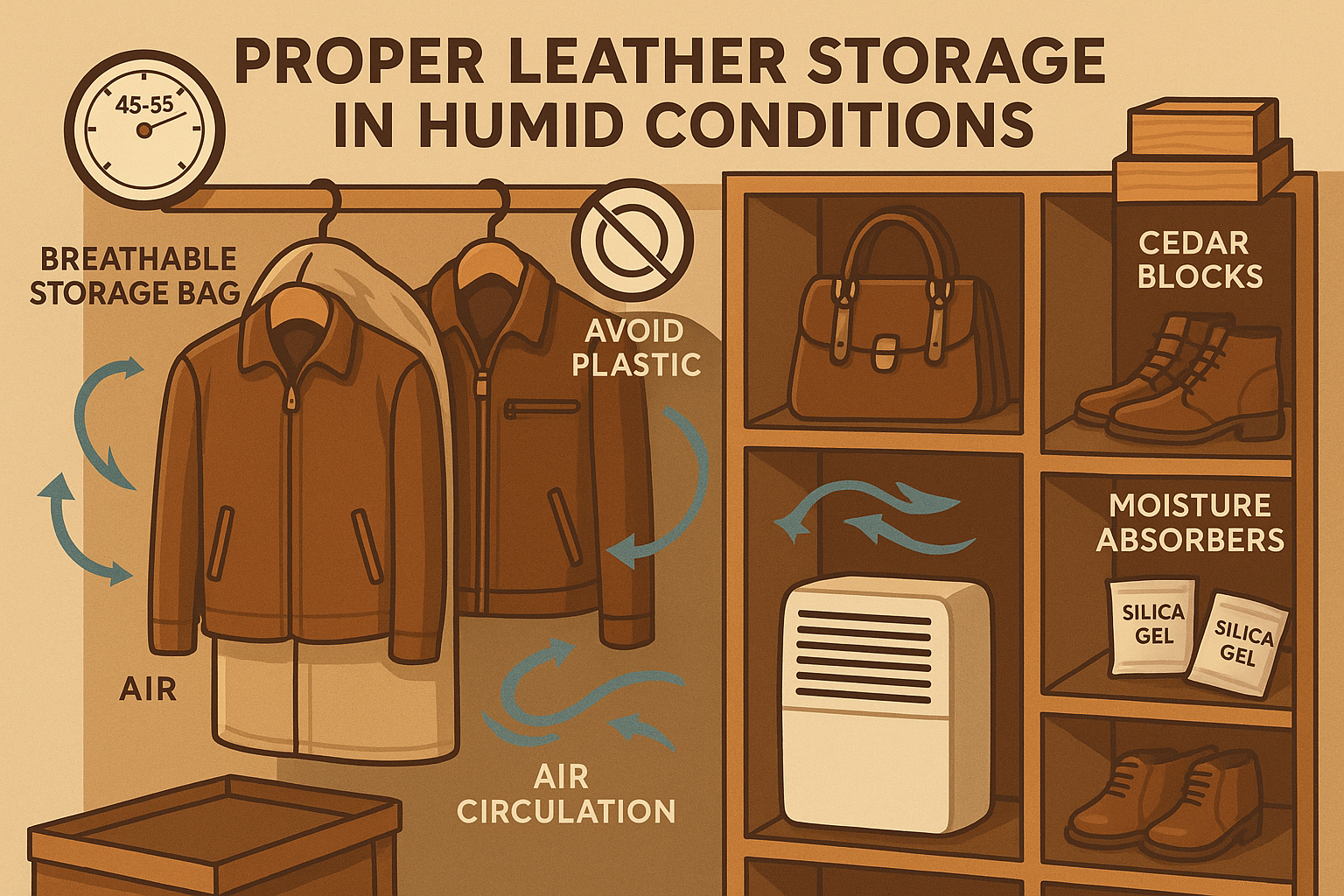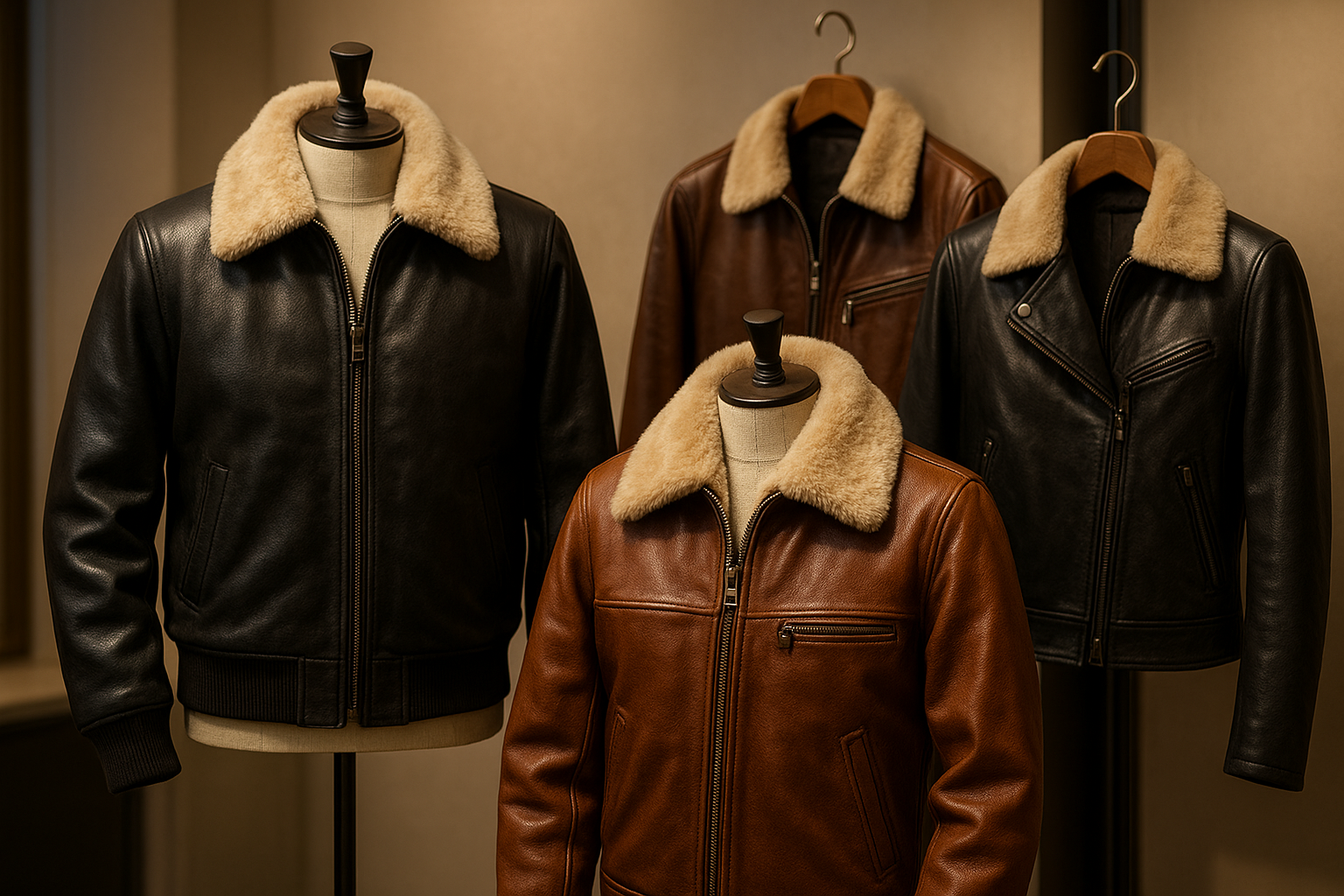1. Why Humidity Causes Leather Odor
Leather is porous, meaning it absorbs moisture from the air. In humid spaces, this leads to dampness, musty smells, and even mold growth if not properly managed.
2. Best Practices for Odor Prevention When Storing Leather in Humid Spaces
a. Control the Storage Environment
-
Use a dehumidifier or silica gel packs to absorb excess moisture.
-
Keep storage areas cool and dry, away from direct sunlight.
b. Choose Breathable Storage Options
-
Store jackets in cotton garment bags instead of plastic.
-
Plastic traps moisture and accelerates odor and mold growth.
c. Use Natural Odor Absorbers
-
Place activated charcoal pouches or baking soda near stored leather.
-
These neutralize odors and help balance humidity levels.
d. Regular Airing and Maintenance
-
Air out your leather items once a month, even if not in use.
-
Wipe down surfaces with a dry, soft cloth to remove dust and prevent mildew buildup.
3. Long-Term Leather Care in Humid Climates
-
Apply leather conditioner every few months to maintain flexibility and prevent cracking.
-
Store leather away from basements, attics, or closets prone to moisture.
-
Rotate stored items to avoid prolonged dampness in one spot.
4. Conclusion
Odor prevention when storing leather in humid spaces comes down to managing moisture and airflow. With proper storage techniques and regular maintenance, you can keep your leather jackets and accessories smelling fresh and looking timeless for years.
FAQs
Q1: Can I store leather in airtight plastic containers?
A1: No, airtight containers trap humidity and cause faster odor and mold buildup.
Q2: How often should I air out leather stored in humid areas?
A2: Ideally once a month, but more often if you notice dampness or humidity spikes.
Q3: Do cedar blocks help with odor prevention?
A3: Yes, cedar can absorb moisture and provide a fresh scent, making it safe for leather storage.
Q4: What is the best place to store leather in a humid home?
A4: A cool, dry, and ventilated space with a dehumidifier is best. Avoid basements or closed cabinets.
Q5: How can I tell if my leather has been affected by humidity?
A5: Signs include a musty smell, sticky surface, or visible mold spots. Immediate cleaning is required.












